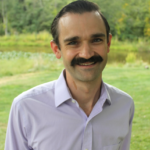From Forensics to Outpatient: A Collaborative and Humanistic Approach to High Risk Cases

From Forensics to Outpatient: A Collaborative and Humanistic Approach to High Risk Cases

Recorded On
-
-
Location
-
On DemandSessions will be available On-Demand
Join us to explore a collaborative approach to “high risk cases” and Recovery-Oriented Cognitive Therapy (CT-R). Discussion will feature case examples from both forensic and outpatient settings, providing practical insights and evidence-based strategies for enhancing therapeutic practice. Attendees will leave with a deeper understanding of how to integrate multidisciplinary teams and innovative approaches to improve client outcomes, reinforcing positive beliefs and behaviors to support clients in achieving meaningful life improvements and fostering long-term recovery. Enhance your practice with cutting-edge techniques from this revolutionary model and see tangible results in your therapy outcomes
CT-R is an evidence-based practice that provides concrete, actionable steps to promote recovery, wellness, and resiliency. CT-R is a transdiagnostic, “total person” approach that can be applied across disorders, presenting problems, and developmental stages (childhood to older adult). CT-R is flexible, practical, highly collaborative, person-centered, strength-based, and focuses on enhancing social determinants of health. It can be especially useful for individuals who have a history of feeling disconnected from, and distrustful of, providers.
- • Counselor
- • Marriage & Family Therapist
- • Nurses
- • Physicians
- • Social Worker
- • Substance Use Disorder Professionals
- • Psychologist
At the end of this course, participants will be able to:
-
Name 3-4 techniques for challenging traditional therapy.
-
Give 2-3 examples of strategies for building and collaborating with teams across disciplines.
-
Identify 2-3 effective methods for training and supervising paraprofessionals to enhance team effectiveness.
-
Summarize evidence-based techniques for fostering client connection and improve therapy outcomes using Recovery-Oriented Cognitive Therapy (CT-R).
-
Anbar, R.D. (2023). How the therapeutic alliance influences treatment outcome. Psychology Today. https://www.psychologytoday.com/us/blog/understanding-hypnosis/202311/how-the-therapeutic-alliance-influences-treatment-outcome#:~:text=Key%20points,patient%20strengthens%20the%20therapeutic%20alliance.
-
Ardito, R. B., & Rabellino, D. (2011). Therapeutic alliance and outcome of psychotherapy: historical excursus, measurements, and prospects for research. Frontiers in psychology, 2, 270. https://doi.org/10.3389/fpsyg.2011.00270
-
Arnold, S., Lustig, N., Pinto, L., & Grant, P. M. (in press). Recovery-oriented cognitive therapy: A testable framework to promote successful long-term recovery from substance use for justice-involved individuals. Journal for Advancing Justice.
-
Beck, A. T., Finkel, M. R., & Beck, J. S. (2021). The theory of modes: Applications to schizophrenia and other psychological conditions. Cognitive Therapy and Research, 45, 391-400.
-
Beck, A.T., Grant, P., Inverso, E., Brinen, A., & Perivoliotis, D. (2021). Recovery-oriented cognitive therapy for serious mental health conditions. Guilford Press: New York.
-
Centers for Disease Control and Prevention (2023). Data and Statistics on Children’s Mental Health. National Center on Birth Defects and Developmental Disabilities. Retrieved April, 2023, from https://www.cdc.gov/childrensmentalhealth/data.html
-
Elvins, R., & Green, J. (2008). The conceptualization and measurement of therapeutic alliance: an empirical review. Clinical psychology review, 28(7), 1167–1187. https://doi.org/10.1016/j.cpr.2008.04.002
-
Grant, P. M., Bredemeier, K., & Beck, A. T. (2017). Six-Month Follow-Up of Recovery-Oriented Cognitive Therapy for Low-Functioning Individuals With Schizophrenia. Psychiatric Services, 68(10), 997-1002.
-
Grant, P. M., & Inverso, E. (2023). Recovery-Oriented Cognitive Therapy: Changing lives with a whole-person approach. Psychiatric Times, 40(1), 29–31.
-
Grant, P. M., Perivoliotis, D., Luther, L., Bredemeier, K., & Beck, A. T. (2018). Rapid improvement in beliefs, mood, and performance following an experimental success experience in an analogue test of recovery-oriented cognitive therapy. Psychological Medicine, 48(2), 261-268.
-
Hart, M. J., McQuillin, S. D., Iachini, A., Weist, M. D., Hills, K. J., & Cooper, D. K. (2023). Expanding school-based Motivational Interviewing through delivery by paraprofessional providers: A preliminary scoping review. School Mental Health: A Multidisciplinary Research and Practice Journal, 15(3), 673–691. https://doi.org/10.1007/s12310-023-09580-3
-
Meyerstein I. (1977). Family therapy training for paraprofessionals in a community mental health center. Family process, 16(4), 477–493. https://doi.org/10.1111/j.1545-5300.1977.00477.x
-
Rosenberg, B. M., Kodish, T., Cohen, Z. D., Gong-Guy, E., & Craske, M. G. (2022). A Novel Peer-to-Peer Coaching Program to Support Digital Mental Health: Design and Implementation. JMIR mental health, 9(1), e32430. https://doi.org/10.2196/32430
-
Varses, F. (2012) Childhood Adversities increase risk of psychosis: A meta-analysis of patient control prospective and cross-sectional cohort studies. Schizophrenia Bulletin.38 (4). 661-671.
-
Wolff, N., Huening, J., Shi, J., & Frueh, B. C. (2014). Trauma exposure and posttraumatic stress disorder among incarcerated men. Journal of urban health : bulletin of the New York Academy of Medicine, 91(4), 707–719.
TPN.health is approved by the California Association of Marriage and Family Therapists (Provider #1000101) to sponsor continuing education for LPCCs. TPN.health maintains responsibility for this program/course and its content. Course meets the qualifications for 1.5 hours of continuing education credit for LPCCs as required by the California Board of Behavioral Sciences.
Trusted Provider Network, LLC is recognized by the New York State Education Department’s State Board for Mental Health Practitioners as an approved provider of continuing education for licensed mental health counselors. #MHC-0220.
TPN.health has been approved by NBCC as an Approved Continuing Education Provider, ACEP No. 7267. Programs that do not qualify for NBCC credit are clearly identified. TPN.health is solely responsible for all aspects of the programs.
Trusted Provider Network, LLC is recognized by the New York State Education Department’s State Board for Mental Health Practitioners as an approved provider of continuing education for licensed marriage and family therapists #MFT-0097.
TPN.health is approved by the California Association of Marriage and Family Therapists (Provider #1000101) to sponsor continuing education for LMFTs. TPN.health maintains responsibility for this program/course and its content. Course meets the qualifications for 1.5 hours of continuing education credit for LMFTs as required by the California Board of Behavioral Sciences.
In support of improving patient care, this activity has been planned and implemented by Amedco LLC and TPN.health. Amedco LLC is jointly accredited by the Accreditation Council for Continuing Medical Education (ACCME), the Accreditation Council for Pharmacy Education (ACPE), and the American Nurses Credentialing Center (ANCC), to provide continuing education for the healthcare team. Amedco LLC designates this activity for a maximum of 1.5 ANCC contact hours.
In support of improving patient care, this activity has been planned and implemented by Amedco LLC and TPN.health. Amedco LLC is jointly accredited by the Accreditation Council for Continuing Medical Education (ACCME), the Accreditation Council for Pharmacy Education (ACPE), and the American Nurses Credentialing Center (ANCC), to provide continuing education for the healthcare team. Professions in scope for this activity are listed below. Amedco Joint Accreditation Provider Number: 4008163. Amedco LLC designates this live activity for a maximum of 1.5 AMA PRA Category 1 Credits™ for physicians. Physicians should claim only the credit commensurate with the extent of their participation in the activity.
TPN.health is approved by the California Association of Marriage and Family Therapists (Provider #1000101) to sponsor continuing education for LCSWs. TPN.health maintains responsibility for this program/course and its content. Course meets the qualifications for 1.5 hours of continuing education credit for LCSWs as required by the California Board of Behavioral Sciences.
TPN.health, #1766, is approved to offer social work continuing education by the Association of Social Work Boards (ASWB) Approved Continuing Education (ACE) program. Organizations, not individual courses, are approved as ACE providers. State and provincial regulatory boards have the final authority to determine whether an individual course may be accepted for continuing education credit. TPN.health maintains responsibility for this course. ACE provider approval period: 03/31/2022 – 03/31/2025. Social workers completing this course receive 1.5 Clinical continuing education credits. ASWB ACE Credit is not available in NY and NJ.
Trusted Provider Network, LLC is recognized by the New York State Education Department’s State Board for Social Work as an approved provider of continuing education for licensed social workers #SW-0654.
This course has been approved by TPN.health, as a NAADAC Approved Education Provider, for educational credits. NAADAC Provider #198061, TPN.health is responsible for all aspects of the programming.This course has been approved by TPN.health, as a NAADAC Approved Education Provider, for educational credits. NAADAC Provider #198061, TPN.health is responsible for all aspects of the programing. Counselor Skill Group: Counseling Services
Trusted Provider Network, LLC is recognized by the New York State Education Department’s State Board for Psychology as an approved provider of continuing education for licensed psychologists #PSY-0125.
Trusted Provider Network is approved by the American Psychological Association to sponsor continuing education for psychologists. Trusted Provider Network maintains responsibility for this program and its content.
TPN.health is approved by the California Association of Marriage and Family Therapists (Provider #1000101) to sponsor continuing education for LEPs. TPN.health maintains responsibility for this program/course and its content. Course meets the qualifications for 1.5 hours of continuing education credit for LEPs as required by the California Board of Behavioral Sciences.
-
Workshop Begins
-
Workshop Ends






